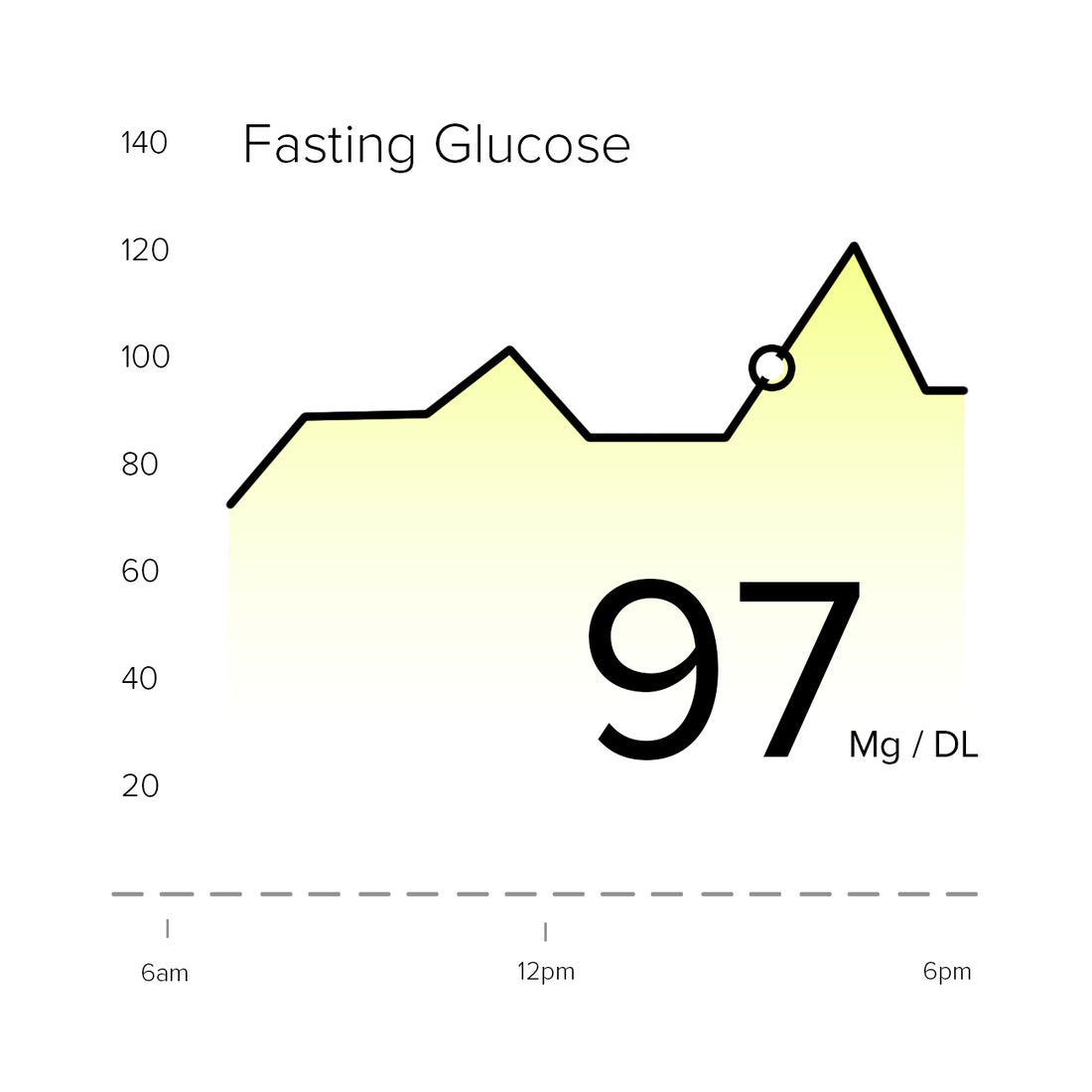
Glucose
Share
Glucose is the body’s main source of energy, derived from the carbohydrates you eat and essential for powering every cell. Once broken down during digestion, glucose fuels your body by producing energy (ATP), ensuring that your muscles, brain, and organs function optimally.
Balanced glucose levels support steady energy, mental clarity, and healthy metabolism, while chronic imbalances can lead to insulin resistance, inflammation, and diseases like diabetes. Maintaining stable glucose through a healthy diet and lifestyle is essential for optimal metabolic health.
The Role of Glucose in Metabolic Health
Glucose fuels the body’s cells, but chronic glucose spikes—caused by frequent consumption of processed and high-sugar foods—can lead to insulin resistance, a condition where the body becomes less responsive to insulin. Over time, this impairs glucose regulation, contributing to metabolic syndrome, Type 2 diabetes, and other chronic illnesses.
As Dr. Casey Means emphasizes, “stable blood sugar levels are fundamental to good metabolic health,” while Dr. Mark Hyman highlights how glucose imbalances drive inflammation and oxidative stress, contributing to early aging and disease.
Food Choices That Lead to Insulin Spikes
-
Processed Sugars and Refined Carbohydrates
- Foods like soda, candy, white bread, and pastries are quickly broken down into glucose, leading to dramatic blood sugar spikes.
- These foods lack fiber, which helps slow glucose absorption, causing a rapid insulin response and subsequent energy crashes.
-
Hidden Sugars
- Many "healthy" packaged foods, like granola bars and flavored yogurts, contain hidden sugars that contribute to glucose volatility.
-
High Glycemic Index Foods
- Foods like potatoes, white rice, and sugary cereals are rapidly digested and contribute to higher glucose and insulin levels compared to low-GI options like legumes and whole grains.
Why Glucose Monitoring Matters
Monitoring glucose is one of the most accessible ways to assess metabolic health. Tools like continuous glucose monitors (CGMs) provide real-time feedback on how your body responds to different foods and activities. As Dr. Means describes, this empowers individuals to take control of their health by identifying triggers for glucose spikes and adjusting their habits accordingly.
Being the CEO of Your Body
Taking a proactive approach means understanding your body's bio-markers and making informed decisions:
- Optimize Diet: Focus on whole, fiber-rich foods like vegetables, legumes, nuts, and seeds to stabilize glucose levels. Pair carbohydrates with healthy fats or proteins to slow glucose absorption.
- Exercise Regularly: Movement improves insulin sensitivity and helps muscles use glucose more effectively.
- Prioritize Sleep: Poor sleep disrupts glucose metabolism, leading to higher fasting glucose levels.
- Reduce Stress: Chronic stress elevates cortisol, which can lead to glucose spikes.
Glucose is one of the most actionable bio-markers for health improvement. Monitoring it is simple, thanks to affordable tools like CGMs and at-home glucose testing kits. By understanding your personal glucose patterns, you can make targeted lifestyle changes to enhance your metabolic health and reduce your risk of chronic disease.
Would you like tips on selecting foods that minimize glucose spikes or specific exercises that improve insulin sensitivity?
Visit: https://mindfulhearts.health/
